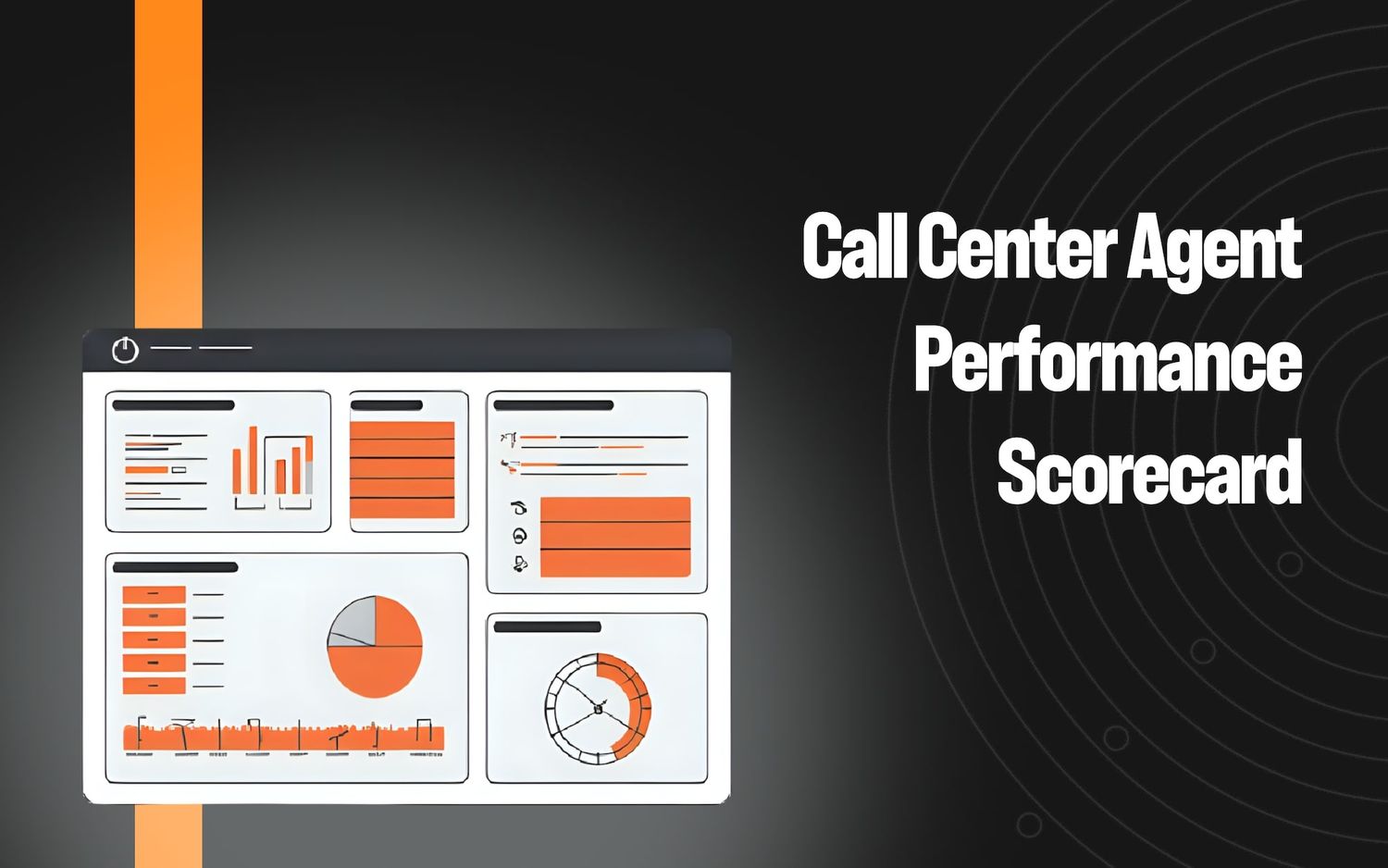6 Ways to Stop Rampant Agent Turnover in Your Call Center


Staffing shortages are currently plaguing many industries, and contact centers are no exception. As a result, we’re seeing some startling call center agent turnover statistics: turnover in the call center industry as a whole, range between 30-45%, with some contact centers having turnover in the triple digits, according to Quality Assurance & Training Connection.
Call center agent turnover creates Internal instability for agents resulting in customer dissatisfaction rates with call escalations rising by 68%, 50% more difficult calls, and 34% longer hold times.
With more remote work opportunities and limited funds for salary increases, how can contact center managers stop the turnover of their staff?
Let’s take a look at some of the most important ways that call center managers can reduce agent attrition, improve team performance, and create better customer interactions.
Why Is There High Call Center Agent Turnover?
While every industry is experiencing the extensive turnover of the Great Resignation, contact centers are being hit uniquely hard.
Historically, Call center agent turnover rates have been high compared to other lines of work due to the repetitive nature of the work, the stress of handling high volumes of calls, and low employee engagement.
Over the course of the pandemic, many call centers were forced to let agents go. Additionally, the agents left voluntarily for alternative work opportunities.
According to Gallup, nearly 48% of working Americans were looking for jobs in mid-2021.
Some of the primary reasons agents are turning away from call center work include:
- Remote work opportunities: Over 80% of employees have reported not wanting to return to an office environment or at least to have a hybrid schedule, but many call centers are enforcing that agents return to in-person work
- High stress: Call center agents are within a group of highly stressed career types. Citing “too many calls” as the primary factor, 96% of call center agents feel acutely stressed at least once a week.
- Psychological impact of unemployment: The psychological impact of the coronavirus pandemic and large-scale unemployment had many unemployed workers reassessing their occupations with 66% seriously considering changing their lines of work and 33% already taking steps to do so.
With call center agent turnover statistics like these working against them, contact center managers and their companies need to change the way things are done in order to create a positive, engaging environment that keeps their agents around.
6 Tips for Stopping Call Center Turnover
Call center agent turnover is a major problem for companies and their customers, but it’s not a problem with no solution.
While there are a number of important factors that contribute to call center employee retention and engagement, here are the top five elements that contact center managers and their organizations can do to reduce call center turnover.
1. Effective onboarding
Job openings are at an all-time high, and if employees don’t have an engaging experience from the start they can easily find another opportunity.
In fact, only 12% of candidates feel their company does a good job during onboarding — if new call center hires are not properly onboarded and excited for their role shortly after signing on, they’ll go somewhere else.
Companies with a strong onboarding process, however, improve new hire retention by 50% and promote 62% higher productivity.
According to C-A De Magistris, Vice President of Care Access Center Operations at Lifeworks, says they take three essential onboarding steps:
“We focus on coaching — not just lowering average call time. Second, simplifying the agent desktop through tech. Lastly, investing in the first few months.”
To ensure a smooth and effective onboarding that will reduce call center agent turnover, create an onboarding process that is:
- Offered in a user-friendly format
- Dynamic and engaging with content delivered through different media
- Delivered by coaches that are thoroughly trained on the material and experienced in onboarding
- Provides new call center agents opportunities to practice customer conversations and interactions
2. Agent performance evaluations
Generally, employees like having clear goals set out for them and actionable steps to achieve those goals.
Performance evaluations, when done effectively, are a win-win for call center managers and their agents. They provide those much-needed clear goals and steps for employees to improve, making them feel valued and purposeful. Additionally, performance evaluations also provide call center managers with valuable insights about employees’ happiness by receiving first-hand insights into what agents want in their work environment.
By regularly gaining feedback from agents, managers can take actionable steps toward enhancing the work experience for their agents to reduce call center turnover.
3. Agent performance rewards
Hand-in-hand with performance evaluations are performance rewards. Unfortunately, 65% of staff don’t feel recognized for their good work.
When employees feel acknowledged and celebrated for good work through rewards, turnover can drop by up to 31%.
Many companies recognize when employees have remained employed with them for five, ten, or more years. However, effective performance rewards have to be more than just longevity recognition to retain employees in today’s job market.
Other, more validating and sought-after performance rewards can include:
- Promotions
- Bonuses
- Commissions
- Peer-to-peer shout outs
4. Continued agent training and learning
Opportunities for skill learning and growing are more important to employee retention than companies may think.
In fact, 34% of employees said that lack of professional development opportunities motivated them to leave their current positions. In addition, 87% of millennials, the predominant generation in the workforce, rate professional development as very important for career choices.
Providing continued development, training, and learning can help keep employees engaged and reduce agent attrition. Professional development can come in a number of different forms, including:
- Continuing education programs
- Conferences, seminars, and webinars
- Refreshed and enhanced call center agent training
- Hearing speakers from different departments
It’s also of the utmost importance that in-house training materials are consistently reviewed and refreshed for relevant applications.
We spoke with Matthew Caron, Head of Customer Support at OpenTable, who told us, “The biggest investment you can make in your training is the time for your trainers and your content writers to continually review your content and ensure it’s delivering what your team needs today.”
5. Have the right tools in place
Without the right solutions in place, agents can feel disengaged from work when performing tedious, non-stimulating tasks. Your agents were hired to engage with customers and provide compassionate, empathetic resolutions, right?
Why not equip them with the tools to use their time to engage with customers, rather than time-consuming tasks that could be automated?
An effective contact center quality management solution can automate monotonous tasks and allow agents to prioritize the work they feel most valued doing.
Caron expressed that, “Moving to a cloud-based product allowed us to move away from tech support and more into customer support. You have to set your team up to be successful and you want to mirror the industry that you’re supporting.”
For example, the contact center quality management system from Level AI:
- Uses natural language understanding (NLU) to uncover customer intent in real-time with twice the accuracy of outdated keyword-based systems. Level AI’s advanced technology therefore requires far less maintenance, meaning QA teams can focus on their agents and the customer interactions they can learn the most from.
- Analyzes, scores and tags key moments in every agent conversation so that QA teams can easily find important moments from customer interactions
- Automatically picks out your most important conversations and tags them with color-coded labels that are easy for QA teams to identify.
6. Coaching Call Center Agents with AI
Using Level AI’s coaching module, contact centers can enable autonomous learning for agents. What does that mean?
By enabling autonomous learning, agents can review the scorecards associated with every call, see their performance over time with Level AI’s personalized analytics, and even get tips on how to improve performance from the platform’s AI.
Additionally, Level AI has also introduced its Agent Screen Recording product. Agent Screen recording allows call center leaders and QA teams to:
- Unlock new performance insights by seeing what’s happening on an agent’s screen during each customer conversation.
- identify process improvement opportunities and share high-quality interactions with other agents.
- Accurately monitor process adherence.
Here’s what Michael Villanueva, the Global Director of Quality – CARE at Vista had to say about Agent Screen Recording:
“Vista has always prioritized customer experience. Level AI’s Agent Screen Recording has added ‘eyes’ to a process where we only had ‘ears’ before. This has helped us identify opportunities to improve our processes and coach our agents more effectively, which improves both team member satisfaction and customer experience.”nnMichael Villanueva, Global Director of Quality at Vista
Ultimately, by continuously coaching your agents, while also allowing agents to learn on their own time through the powers of AI, contact centers can reduce agent turnover, develop rapid agent growth, and increase call center agent retention.
Put an End to Call Center Agent Turnover with Contact Center Quality Management
Call centers are experiencing the same major turnover as companies everywhere. The difference? Call centers have the resources to improve agent engagement and reduce agent attrition with contact center quality management.
To learn more about how contact center quality management with Level AI can put an end to agent churn, request a demo today.
Keep reading
View all





